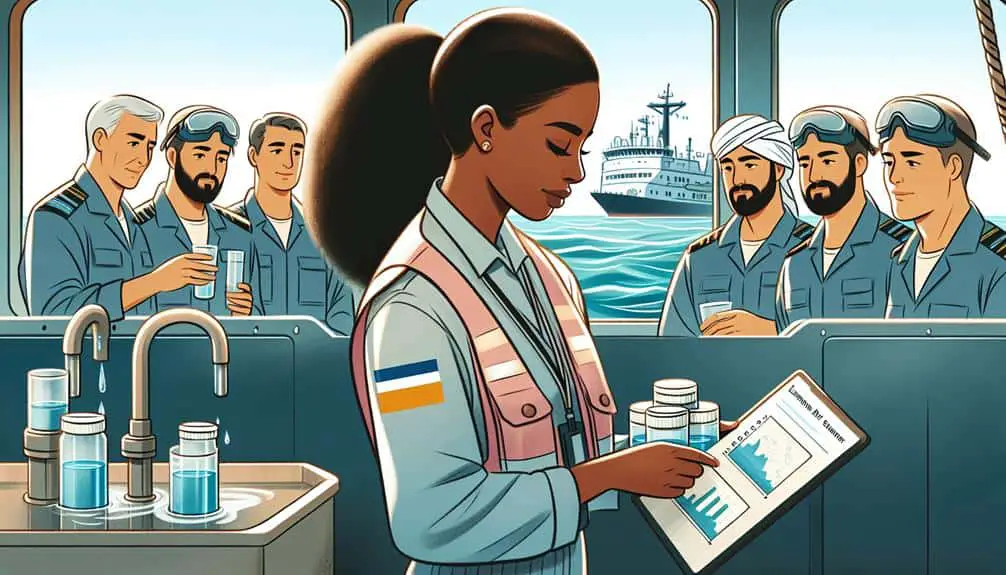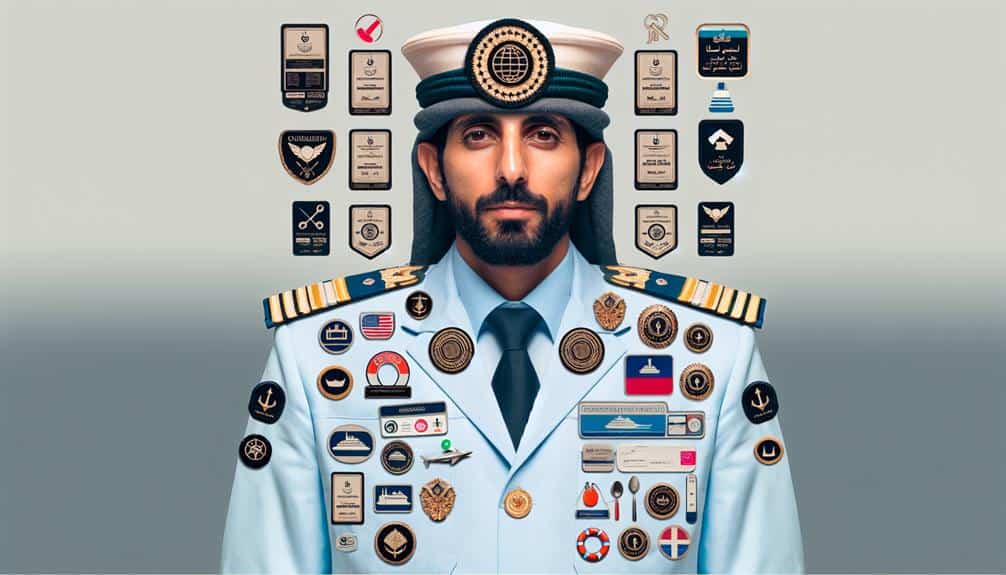Environmental officers at sea monitor emissions, oversee waste management, implement pollution prevention measures, train crew, and coordinate environmental incident responses. Your role involves ensuring compliance with regulations, conducting audits, managing hazardous materials, and optimizing fuel consumption. You are responsible for promoting sustainability practices, fostering environmental awareness, and responding to incidents promptly. Your work contributes to protecting marine ecosystems and promoting a culture of environmental responsibility on sea vessels.
Key Points
- Monitor and document all vessel activities for environmental compliance.
- Implement waste management programs and ensure proper disposal of hazardous materials.
- Enforce pollution prevention measures to reduce environmental impact.
- Conduct crew training on environmental practices and response to incidents.
- Coordinate emergency response protocols for environmental incidents at sea.
Environmental Regulations Compliance
To guarantee compliance with environmental regulations, environmental officers must meticulously monitor and document all activities on board sea vessels. This includes monitoring emissions to make sure they meet set standards and conducting regular audits to assess the vessel's environmental impact.
Reporting requirements are also an important aspect of compliance, with officers responsible for submitting detailed reports on emissions, waste management, and any environmental incidents.
Inspections play a critical role in verifying adherence to regulations, with officers overseeing and participating in these inspections to address any potential non-compliance issues promptly.
Waste Management Oversight
Monitoring waste management practices onboard sea vessels is an important responsibility for environmental officers, guaranteeing compliance with regulations and minimizing environmental impact.
Environmental officers oversee the implementation of recycling programs to handle various waste streams generated during maritime operations. They make sure that recyclable materials such as paper, plastics, and glass are segregated and properly managed to reduce the volume of waste destined for disposal at sea or onshore facilities.
Additionally, environmental officers play a vital role in managing hazardous materials onboard by ensuring proper storage, handling, and disposal in accordance with international regulations. Hazardous materials like chemicals, oils, and batteries pose significant environmental risks if not managed effectively, making it crucial for environmental officers to monitor these substances closely.
Pollution Prevention Measures
Implementing pollution prevention measures onboard sea vessels is a vital task for environmental officers to safeguard marine environments from harmful contaminants. Eco-friendly practices play a pivotal role in guaranteeing sustainable operations at sea.
To prevent pollution effectively, environmental officers must oversee the proper disposal of waste, especially hazardous materials like oil, chemicals, and plastics. Implementing eco-friendly practices such as recycling, using biodegradable cleaning products, and reducing single-use plastics are essential steps in pollution prevention.
Additionally, promoting sustainable operations involves optimizing fuel consumption to minimize emissions and implementing ballast water management practices to prevent the spread of invasive species. Monitoring air emissions, wastewater discharge, and noise pollution are also critical aspects of pollution prevention.
Crew Training and Awareness
Crew training and awareness play a significant role in ensuring the effective implementation of pollution prevention measures onboard sea vessels. Training effectiveness is essential in equipping crew members with the necessary knowledge and skills to handle hazardous materials, manage waste, and follow best environmental practices. Engaging the crew in regular training sessions not only enhances their understanding of pollution prevention but also fosters a culture of environmental responsibility onboard.
Awareness campaigns are equally important to keep the crew informed about sustainability practices and the importance of adhering to regulations. By raising awareness about the impact of pollution on marine ecosystems and human health, crew members are more likely to actively participate in pollution prevention efforts. Communicating the significance of sustainability practices such as proper waste disposal, fuel efficiency, and energy conservation can lead to a more environmentally conscious crew.
Environmental Incident Response
To efficiently address environmental incidents at sea, prompt and effective response protocols must be established and rigorously followed onboard sea vessels. In the event of an oil spill or chemical leak, spill cleanup procedures are essential to minimize environmental damage. Environmental officers play a key role in coordinating emergency preparedness drills to guarantee all crew members understand their responsibilities during such incidents.
During spill cleanup operations, it's key to have designated personnel trained in handling hazardous materials and implementing containment strategies. Immediate containment of the spill area can prevent the spread of pollutants and mitigate the impact on marine ecosystems. Utilizing appropriate personal protective equipment is crucial to safeguarding the crew involved in cleanup efforts.
Regular maintenance of spill response equipment, such as oil booms and chemical neutralizers, is necessary to ensure their functionality in emergencies. Environmental officers must oversee drills simulating oil spills or chemical leaks to assess the crew's proficiency in executing cleanup procedures swiftly and effectively. By prioritizing emergency preparedness and response training, environmental officers contribute greatly to preserving marine environments from the consequences of environmental incidents at sea.
Frequently Asked Questions
How Do Environmental Officers at Sea Handle Communication and Collaboration With Other Vessels or Entities to Ensure Environmental Protection Measures Are Being Followed?
When managing communication with other vessels or entities at sea, environmental officers make sure that all parties adhere to environmental protection measures. Stakeholder engagement is essential for regulatory compliance, and risk assessment guides mitigation strategies.
What Steps Do Environmental Officers Take to Monitor and Address the Impact of Noise Pollution on Marine Life During Operations at Sea?
To monitor and address noise pollution's impact on marine life, environmental officers utilize hydrophones for real-time monitoring. By identifying noise sources, they can adjust vessel operations, like reducing speed or altering routes, to protect marine life.
How Do Environmental Officers Address the Potential Risks and Challenges Associated With Invasive Species Introduction Through Ballast Water Discharge?
When addressing the risks of invasive species from ballast water discharge, you must implement rigorous ballast water management practices. Conduct detailed risk assessments, and apply effective invasive species control measures. Mitigate potential threats with proactive and thorough monitoring and mitigation efforts to protect marine ecosystems.
What Strategies Do Environmental Officers Employ to Minimize the Environmental Impact of Underwater Archaeology or Salvage Operations at Sea?
You, as an environmental officer, must navigate the delicate balance of resource conservation and ecological preservation during underwater archaeology or salvage operations. Implement sustainable practices, prioritize habitat restoration, and utilize precise scientific methods to minimize environmental impact.
How Do Environmental Officers Stay Informed and Up-To-Date on Emerging Environmental Threats and Regulations That May Affect Their Work at Sea?
To stay informed on emerging environmental threats and regulations for your sea work, engage in training programs and review environmental reports. Foster industry partnerships for updated insights on regulatory changes. Stay vigilant and informed.




